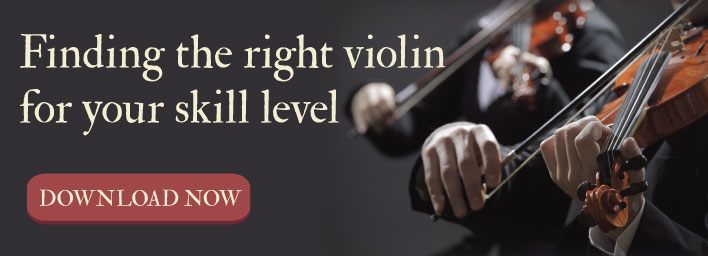Does Playing A Musical Instrument Help With Motor Skills?

There are a wealth of benefits derived through musical instruction. Many studies have been recently conducted that show clear correlation between learning music and heightened comprehension in language arts and math skills. As a parent, you want to provide your children with the best possible tools that will allow them to grow, learn, and master their tasks. Early motor skill development is a key factor in achieving those goals.
Any music instructor can tell you that learning to play an instrument like the violin at a young age isn’t simply a great form of personal expression that will be a blessing to your child for his or her entire life; it’s also an excellent way to help children cultivate patience, improve concentration, and transfer those skills to their academic performance. And, this is especially true for special needs children. See how learning to play the violin can improve your children's grades.
But, what about motor skill development? Can learning to play the violin actually improve it? These were the questions recently asked by Gottfried Schlaug and his distinguished colleagues at the Music and Neuroimaging Laboratory at Beth Israel Deaconess Medical Center and Harvard Medical School. They have been currently tracking the impact of music lessons, in particular, violin and piano instruction, on brain development and cognitive processes.
Understanding the Studies
Since it has been found that children on the autism spectrum demonstrate elevated pitch discrimination in both single tones and melodic contexts, according to information reported to the US National Library of Medicine in February 2014, the desire to further understand the positive benefits of musical instruction has been heightened.
Dr. Schlaug’s latest article in Science America outlines the healing power of music, but what he, and other experts have discovered on the influence of music on motor skill development and recovery is quite extraordinary.
In one study, children ages 5-7 began music training after having undergone preliminary brain scans and cognitive tests to establish baseline information. To ensure comparative results, another control group was monitored and matched according to similar performances, age, and socioeconomic status.
Fifteen months into the study, the children who underwent musical instruction displayed greater improvement in finger motor skills and auditory discrimination. They also were found to have structural brain differences in the regions linked to motor and auditory processing, and in various frontal areas.
In another controlled study, instructional music therapy has been found to improve the recovery of stoke victim’s speech and motor skills.
Why Does It Work?
More research is needed to understand why music has such an impact on cognitive functions, but there are many theories out there.
Some believe that learning to play an instrument like the violin at an early age helps encourage the brain to forge new neurological transmissions and pathways. And, indeed, learning the violin does involve taking complicated task and breaking it down into small, performable steps.
At a fundamental level, to learn an instrument you must be able patiently apply incremental techniques, which can translate into other mental processes. In fact, children who learn to play the violin exhibit a strong sense of personal accomplishment, because they realize that if they can learn something as complicated as the violin, they can apply those same principles to others things that seem challenging.
Giving your child the proper tools to help him or her succeed in life is important; and he benefits of music instruction have been proven to increase all sorts of academic, physical, and social performances. Likewise, for special needs children, the motor skills development, auditory processing, and increased attention spans created through music training can go a long way towards helping them overcome their individual challenges. To find out more about the groundbreaking work being performed in this field, visit the MusicBrain Website.

